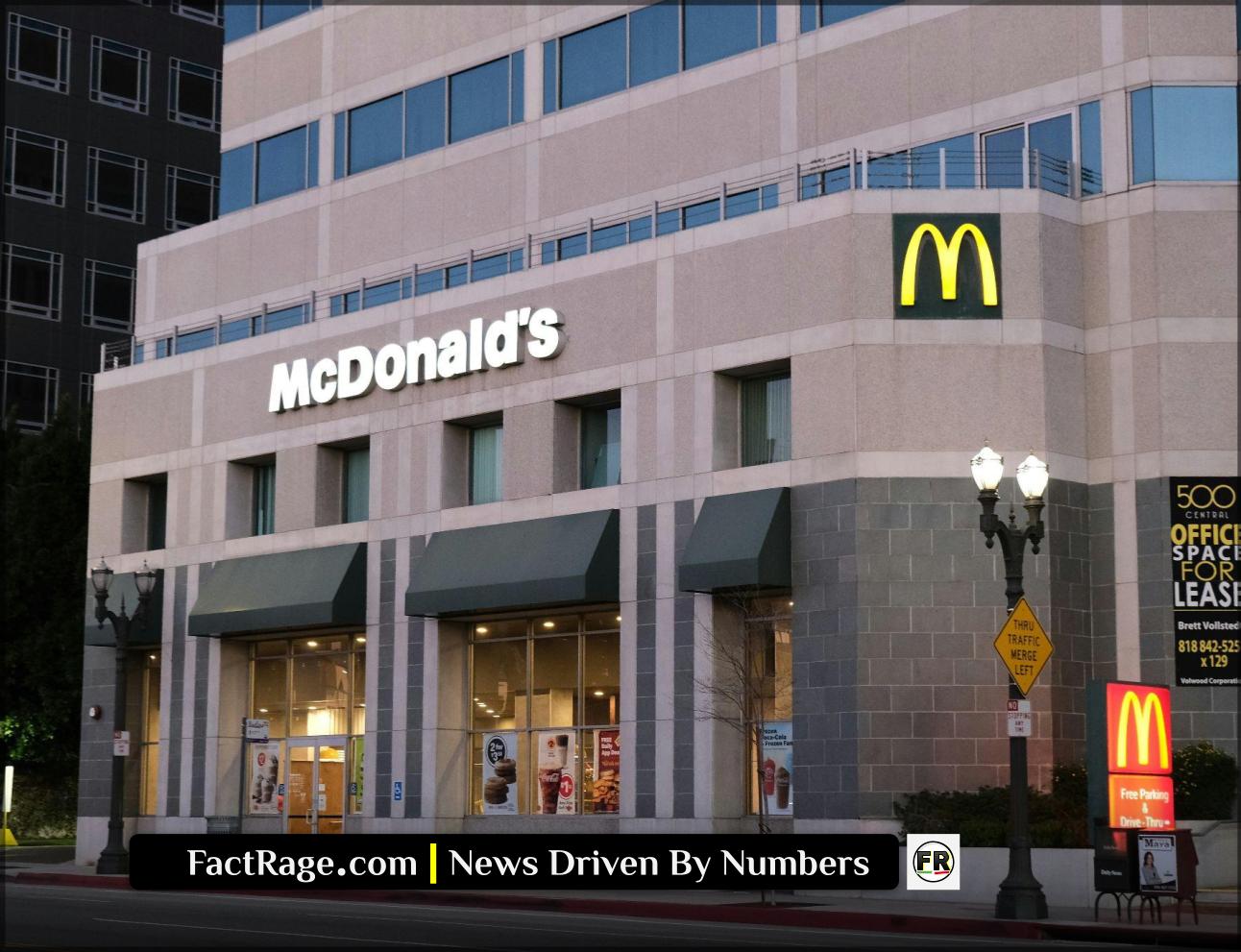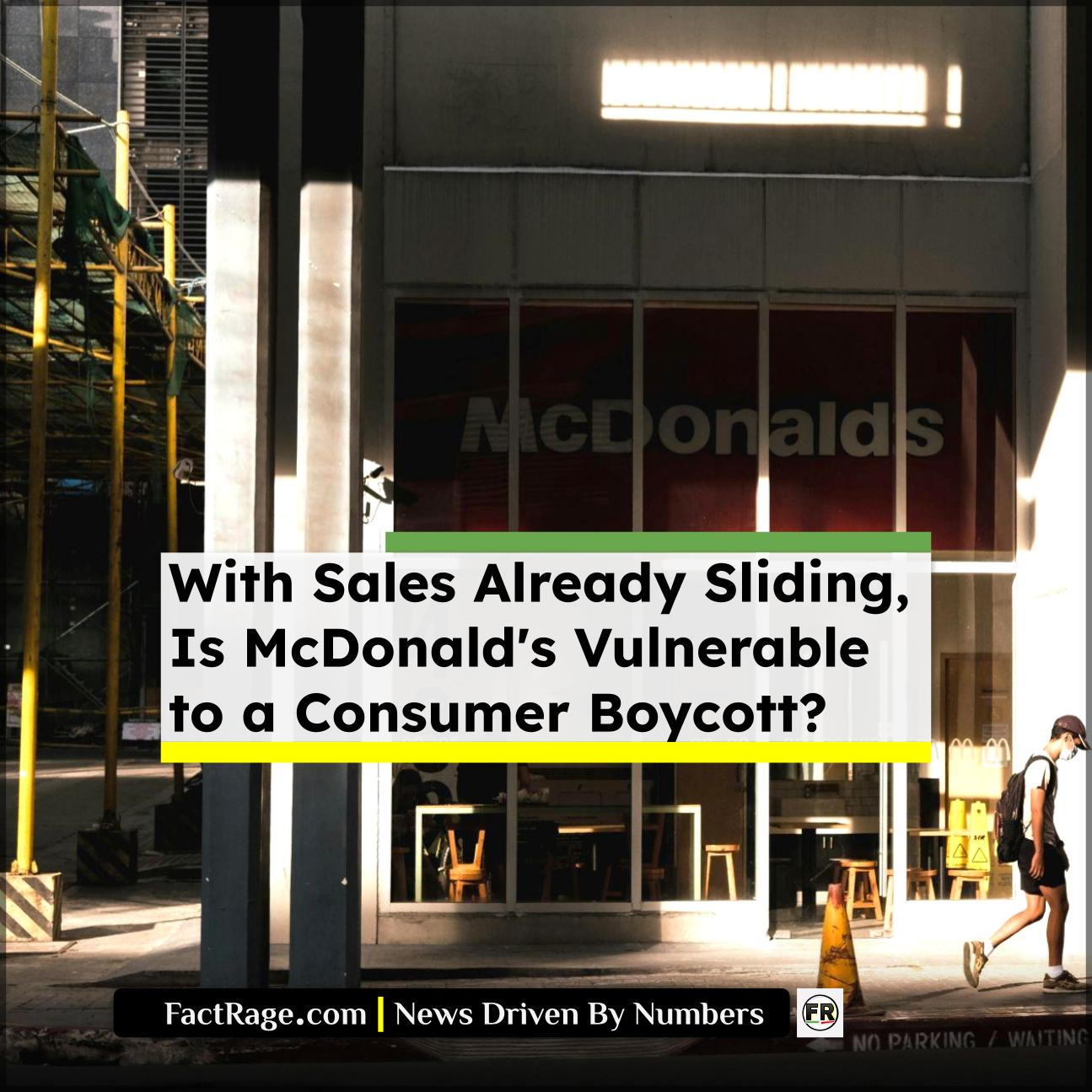NATIONWIDE – A planned week-long consumer boycott is set to test the financial resilience of McDonald’s, a fast-food giant already contending with declining sales and a weakened value perception among its core customers.
- The Protest – A grassroots campaign led by The People’s Union USA is calling for a boycott of McDonald’s from June 24 through June 30, accusing the company of “price gouging” and demanding corporate accountability.
- Financial Headwinds – The boycott comes as McDonald’s reported its second straight quarter of sales declines, with its average menu prices having increased by approximately 40% since 2019.
- Mixed Precedent – The effectiveness of similar boycotts varies; a campaign against Amazon showed negligible financial impact, while Target publicly admitted that a boycott contributed to a drop in its sales.
A grassroots movement is targeting the Golden Arches, raising a critical question for investors and consumers alike: with customers already pulling back on spending, could a coordinated boycott meaningfully impact the corporation’s bottom line?
Why McDonald’s is the Latest Target for Consumer Activism
The call for an “economic blackout” against McDonald’s comes from The People’s Union USA, a group advocating for what it calls “economic resistance” and corporate reform. The boycott, scheduled from Tuesday, June 24, through the following Monday, cites a number of grievances.
Chief among the complaints is the issue of “price gouging.” This sentiment was echoed in an October 2023 letter from Democratic senators, who pointed out that McDonald’s net annual income surged by over 79% to nearly $8.5 billion between 2020 and 2023, suggesting price hikes have outpaced inflation. The movement also criticizes the company for allegedly blocking unionization efforts and for rolling back some of its diversity, equity, and inclusion (DEI) initiatives in January. For its part, McDonald’s has denied allegations of price gouging, stating that its franchisees are responsible for setting their own menu prices to keep pace with their rising costs.
A Look at the Numbers: Is McDonald’s Already Vulnerable?

From a purely financial perspective, the boycott campaign is shining a spotlight on McDonald’s at a delicate time. The company has already reported two consecutive quarters of sales declines, indicating a shift in consumer behavior. A key driver appears to be a weakening of the chain’s long-held “value perception.”
With average menu prices soaring about 40% since 2019, customers, particularly in low- and middle-income brackets, have begun to pull back their spending. While the company’s revenue stream is vast, this erosion of its core value proposition creates a potential vulnerability that a focused boycott could exploit. The protest’s emphasis on price hikes directly targets the primary reason customers are already rethinking their purchases.
Precedent and Probability: Can This Boycott Actually Dent Sales?
History shows that consumer boycotts are notoriously difficult to sustain and often have a limited direct impact on the massive balance sheets of multinational corporations. A boycott organized by the same group against Amazon in March 2025 had a “negligible affect,” with the e-commerce giant posting better-than-expected earnings for the quarter.
However, the case of Target offers a different outcome. A 40-day boycott led by a megachurch pastor was deemed more “fruitful.” Target’s leadership acknowledged that customer backlash to its policy changes, a key focus of that boycott, was a factor in a quarterly sales decline.
The crucial variable for McDonald’s may lie in the nature of the complaint. While the Amazon protest was broad, the action against Target was tied to specific corporate decisions that alienated a segment of its customer base. The McDonald’s boycott focuses squarely on price—the very issue that financial data shows is already causing customers to walk away. This alignment between the protest’s message and pre-existing consumer sentiment could give this boycott a sharper financial bite than previous campaigns.










